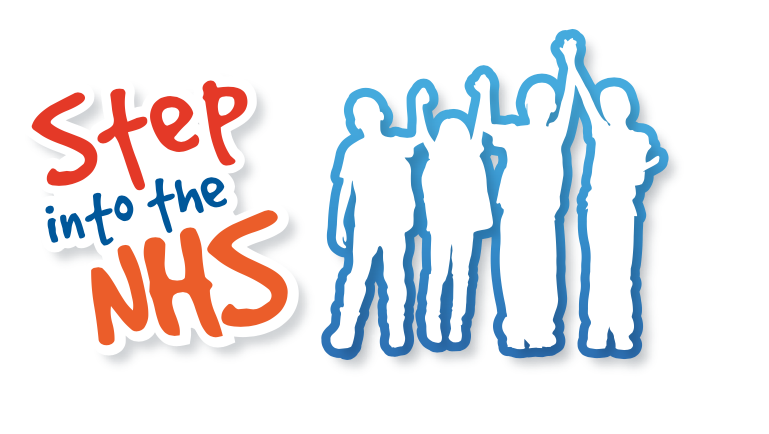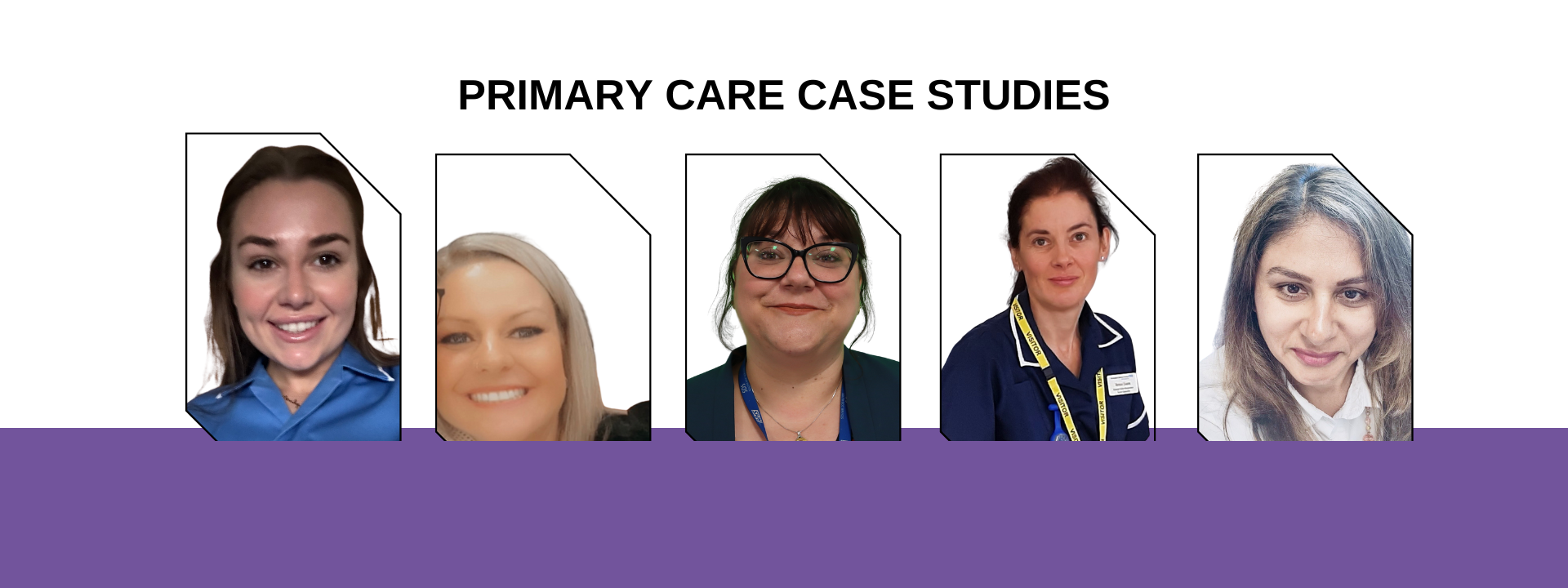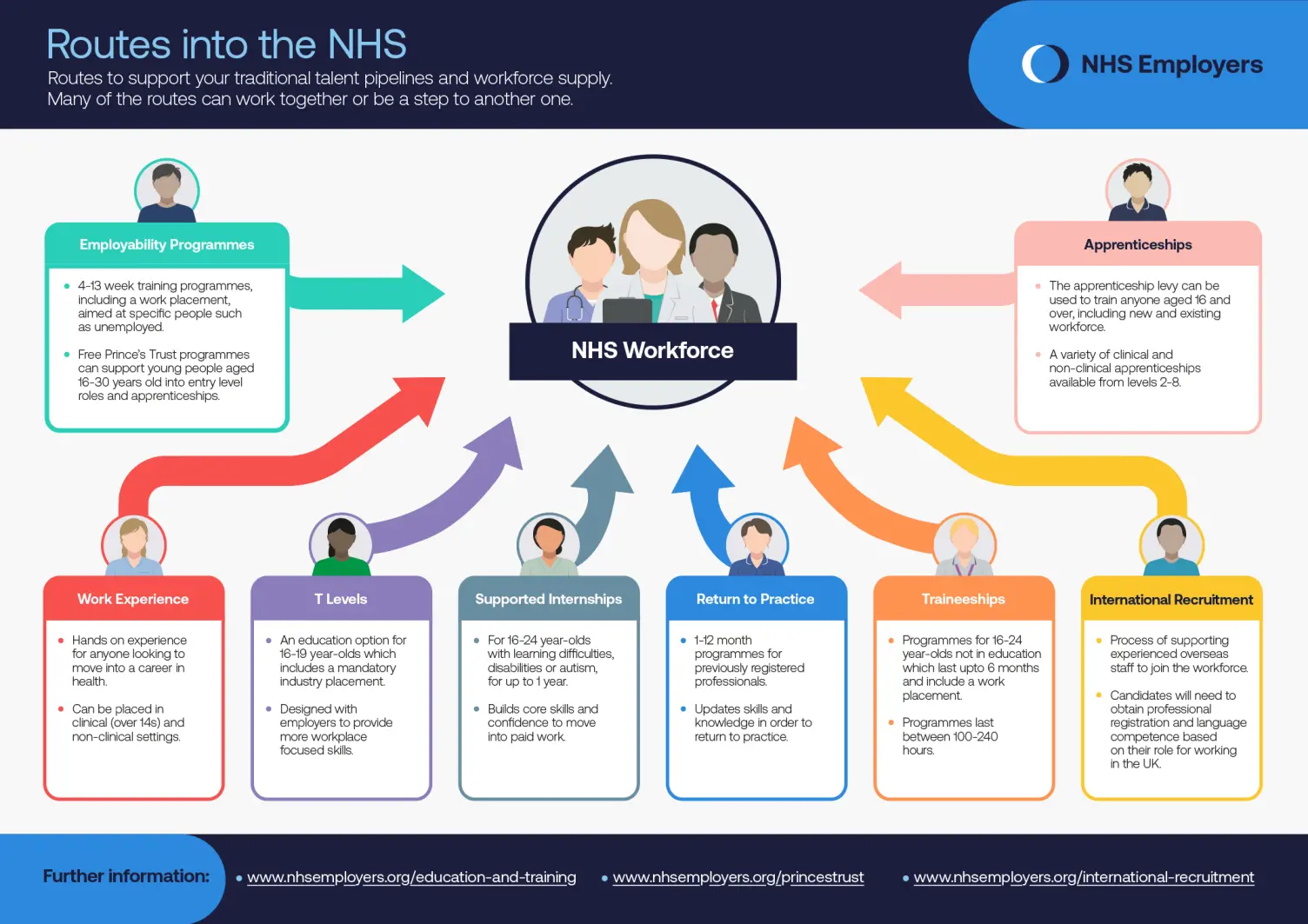Routes into the NHS
Primary Care Roles
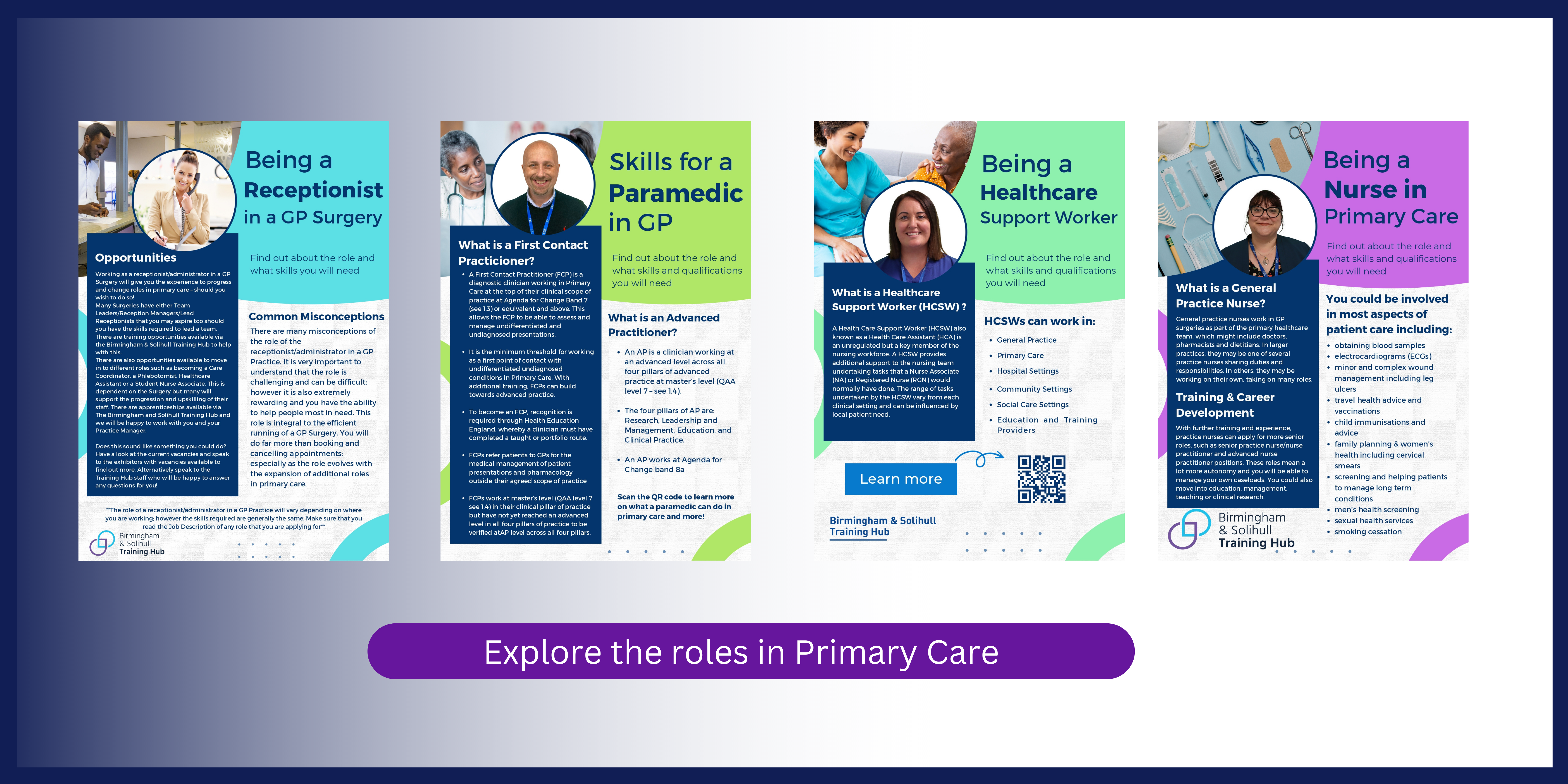
Primary Care Careers Pathway
Additional Roles – Click here for a quick reference summary on the roles
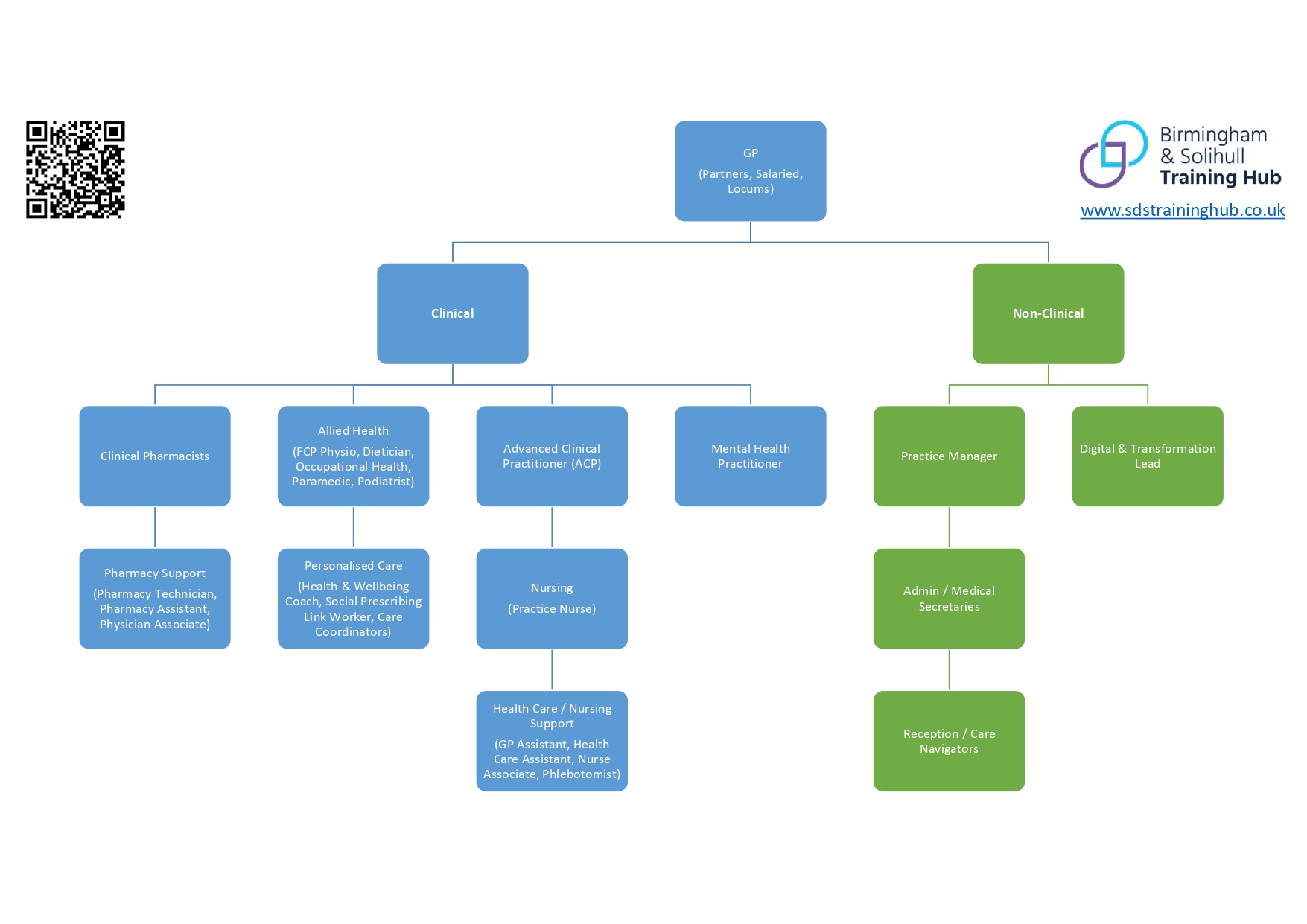
I Can Programme

The ‘I Can’ programme has been designed to help unemployed and young people from Birmingham and Solihull into entry-level jobs in health and social care. Undertake a training programme to learn more about the role you have expressed an interest in or understand what job opportunities there are to allow you to make a choice
Click on the link below for more information and details on how to apply
Thrive Into Work
Thrive into Work offers one-to-one job finding support to people with health challenges.
You can get this support if:
- You are aged 18 or over
- You are currently out of work, or at risk of leaving work due to sickness
- You have problems finding work, or staying in a job, because of your health. This can be your physical health or your mental health
Click on the link to find out more.

